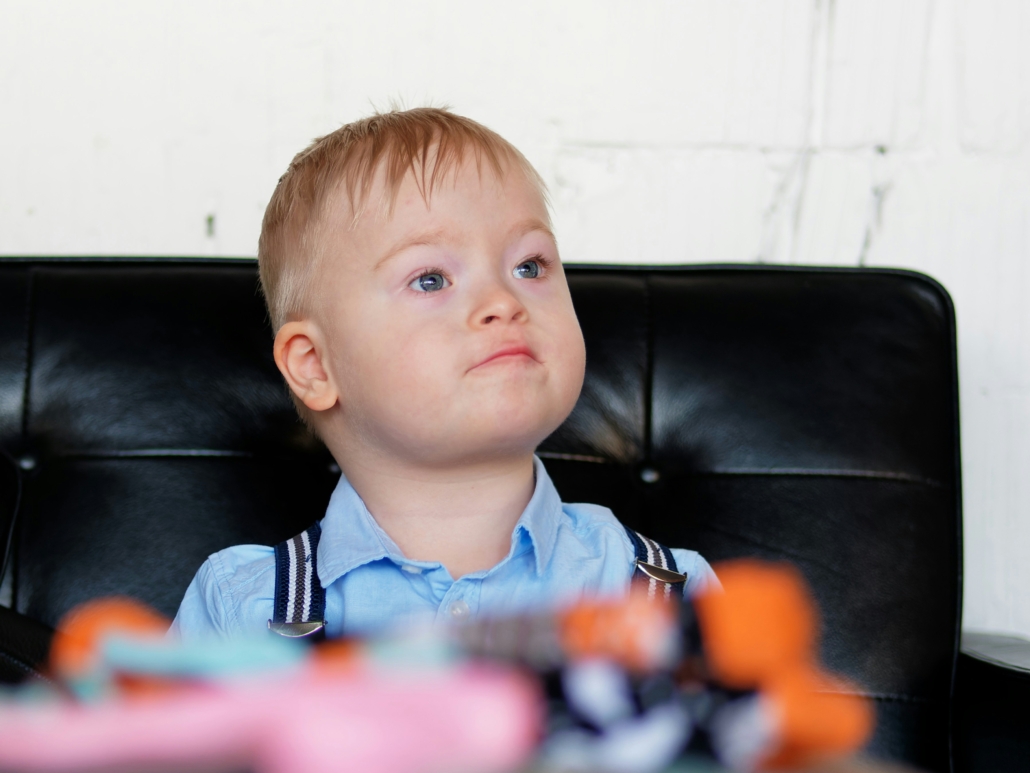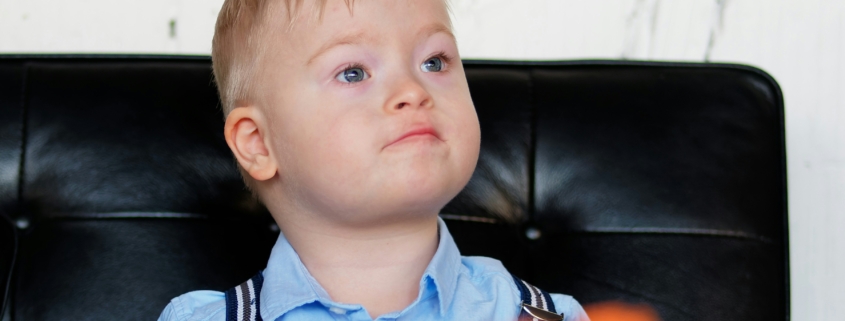The abortion debate no one wants to have

Photo Credit Pavol Štugel on Unsplash
The following is a reprint from The Chron. This article was authored by Patricia E. Bauer.
If it’s unacceptable for William Bennett to link abortion even conversationally with a whole class of people (and, of course, it is), why then do we as a society view abortion as justified and unremarkable in the case of another class of people: children with disabilities?
I have struggled with this question almost since our daughter Margaret was born, since she opened her big blue eyes and we got our first inkling that there was a full-fledged person behind them.
Whenever I am out with Margaret, I’m conscious that she represents a group whose ranks are shrinking because of the wide availability of prenatal testing and abortion. I don’t know how many pregnancies are terminated because of prenatal diagnoses of Down syndrome, but some studies estimate 80 percent to 90 percent.
Imagine. As Margaret bounces through life, especially out here in the land of the perfect body, I see the way people look at her: curious, surprised, sometimes wary, occasionally disapproving or alarmed. I know that most women of childbearing age that we may encounter have judged her and her cohort, and have found their lives to be not worth living. To them, Margaret falls into the category of avoidable human suffering. At best, a tragic mistake. At worst, a living embodiment of the pro-life movement. Less than human. A drain on society. That someone I love is regarded this way is unspeakably painful to me.
This view is probably particularly pronounced in blue-state California, but I keep finding it everywhere, from academia on down. At a dinner party not long ago, I was seated next to the director of an Ivy League ethics program. In answer to another guest’s question, he said he believes that prospective parents have a moral obligation to undergo prenatal testing and to terminate their pregnancy to avoid bringing forth a child with a disability, because it was immoral to subject a child to the kind of suffering he or she would have to endure. (When I started to pipe up about our family’s experience, he smiled politely and turned to the lady on his left.)
Margaret does not view her life as unremitting human suffering (although she is angry that I haven’t bought her an iPod). She’s consumed with more important things, like the performance of the Boston Red Sox in the playoffs and the dance she’s going to this weekend. Oh sure, she wishes she could learn faster and had better math skills. So do I. But it doesn’t ruin our day, much less our lives. It’s the negative social attitudes that cause us to suffer.
Many young women, upon meeting us, have asked whether I had “the test.” I interpret the question as a get-home-free card. If I say no, they figure, that means I’m a victim of circumstance, and therefore not implicitly repudiating the decision they may make to abort if they think there are disabilities involved. If yes, then it means I’m a right-wing anti-abortion nut whose choices aren’t relevant to their lives.
Either way, they win.
In ancient Greece, babies with disabilities were left out in the elements to die. We in America rely on prenatal genetic testing to make our selections in private, but the effect on society is the same.
Margaret’s old pediatrician tells me that years ago he used to have a steady stream of patients with Down syndrome. Not anymore. Where did they go, I wonder. On the west side of Los Angeles, they aren’t being born anymore, he says.
The irony is that we live in a time when medical advances are profoundly changing what it means to live with disabilities. Years ago, people with Down syndrome often were housed in institutions. Many were in poor health, had limited self-care and social skills, couldn’t read, and died young. It was thought that all their problems were unavoidable, caused by their genetic anomaly.
Now it seems clear that these people were limited at least as much by institutionalization, low expectations, lack of education and poor health care as by their DNA. Today people with Down syndrome are living much longer and healthier lives than even 20 years ago. Buoyed by the educational reforms of the past quarter-century, they are increasingly finishing high school, living more independently and holding jobs.
That’s the rational pitch; here’s the emotional one. Margaret is a person and a member of our family. She has my husband’s eyes, my hair and my mother-in-law’s sense of humor. We love and admire her because of who she is — feisty and zesty and full of life — not in spite of it. She enriches our lives. If we might not have chosen to welcome her into our family, given the choice, then that is a statement more about our ignorance than about her inherent worth.
What I don’t understand is how we as a society can tacitly write off a whole group of people as having no value. I’d like to think that it’s time to put that particular piece of baggage on the table and talk about it, but I’m not optimistic. People want what they want: a perfect baby, a perfect life. To which I say: Good luck. Or maybe, dream on.
And here’s one more piece of un-discussable baggage: This question is a small but nonetheless significant part of what’s driving the abortion discussion in this country. I have to think that there are many pro-choicers who, while paying obeisance to the rights of people with disabilities, want at the same time to preserve their right to ensure that no one with disabilities will be born into their own families. The abortion debate is not just about a woman’s right to choose whether to have a baby; it’s also about a woman’s right to choose which baby she wants to have.
If you appreciate our work and would like to help, one of the most effective ways to do so is to become a monthly donor. You can also give a one time donation here or volunteer with us here.


 Royalty free, photo credit Pxfuel https://www.pxfuel.com/en/free-photo-jrogc
Royalty free, photo credit Pxfuel https://www.pxfuel.com/en/free-photo-jrogc